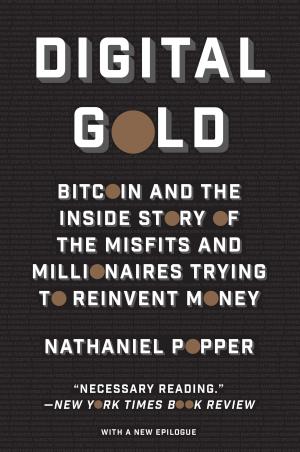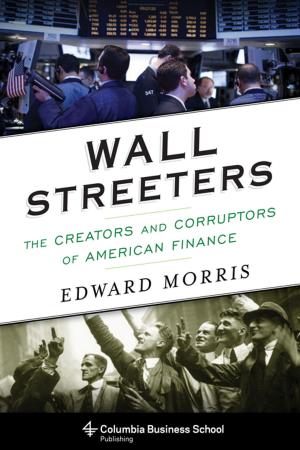BlackBerry: The Inside Story Of Research In Motion
Business & Finance, Business Reference, Corporate History| Author: | Rod McQueen, Jim Balsillie, Mike Lazaridis | ISBN: | 9781554703685 |
| Publisher: | Key Porter Books | Publication: | May 1, 2010 |
| Imprint: | Language: | English |
| Author: | Rod McQueen, Jim Balsillie, Mike Lazaridis |
| ISBN: | 9781554703685 |
| Publisher: | Key Porter Books |
| Publication: | May 1, 2010 |
| Imprint: | |
| Language: | English |
Chances are…you are looking at yours right now. They are--quite literally--everywhere. US President Barack Obama admits he cannot live without it. Oprah Winfrey, reigning queen of daytime TV, declared on air that the BlackBerry is one of her "favorite things." BusinessWeek put the case for owning one bluntly in an article entitled simply: "No BlackBerry. No Life." From its relatively modest debut in 1999, the BlackBerry has emerged almost overnight to become the most necessary and sought after piece of technology in the world. It took five years for Research in Motion the BlackBerry's phenomenally successful manufacturer to sign up its first million subscribers. Today, the company averages a million new subscribers a month. Once an elitist toy for blue-chip corporate executive or high-octane lawyer, today elementary school kids are thumbing messages onto the tiny keyboard on the way to school, soccer moms are organizing their lives on it while waiting for their children at after-school activities, government officials are checking on public policy updates right in the hearing rooms. So addicted have we become that the device is often referred to as a "Crackberry." Co-founded in 1984 by Jim Balsillile and Mike Lazaridis, RIM generates annual revenues in excess of 11 billion and has an annual growth rate of a staggering 84 per cent. Fortune ranked RIM number one in its 2009 list of 100 Fastest Growing Companies. In 1997 the firm was just another small, high tech hopeful with annual revenue of 13.5 million and 100 or so employees making two-way pagers. The launch of the BlackBerry forever changed the firm. Today its market capitalization value is 43 billion making RIM three times bigger than its chief rival Motorola. RIM currently employs 12,000 employees at its headquarters in Ontario 5000 of whom are devoted to research. The BlackBerry: From Cult Object to Cultural Revolution is National Book Award winner and bestselling author Rod McQueen's fascinating and absorbing biography of not only the device's incredible popularity, but a never-before-seen behind-the-scenes glimpse into its origins and development…and the geniuses who were its inspiration.
Chances are…you are looking at yours right now. They are--quite literally--everywhere. US President Barack Obama admits he cannot live without it. Oprah Winfrey, reigning queen of daytime TV, declared on air that the BlackBerry is one of her "favorite things." BusinessWeek put the case for owning one bluntly in an article entitled simply: "No BlackBerry. No Life." From its relatively modest debut in 1999, the BlackBerry has emerged almost overnight to become the most necessary and sought after piece of technology in the world. It took five years for Research in Motion the BlackBerry's phenomenally successful manufacturer to sign up its first million subscribers. Today, the company averages a million new subscribers a month. Once an elitist toy for blue-chip corporate executive or high-octane lawyer, today elementary school kids are thumbing messages onto the tiny keyboard on the way to school, soccer moms are organizing their lives on it while waiting for their children at after-school activities, government officials are checking on public policy updates right in the hearing rooms. So addicted have we become that the device is often referred to as a "Crackberry." Co-founded in 1984 by Jim Balsillile and Mike Lazaridis, RIM generates annual revenues in excess of 11 billion and has an annual growth rate of a staggering 84 per cent. Fortune ranked RIM number one in its 2009 list of 100 Fastest Growing Companies. In 1997 the firm was just another small, high tech hopeful with annual revenue of 13.5 million and 100 or so employees making two-way pagers. The launch of the BlackBerry forever changed the firm. Today its market capitalization value is 43 billion making RIM three times bigger than its chief rival Motorola. RIM currently employs 12,000 employees at its headquarters in Ontario 5000 of whom are devoted to research. The BlackBerry: From Cult Object to Cultural Revolution is National Book Award winner and bestselling author Rod McQueen's fascinating and absorbing biography of not only the device's incredible popularity, but a never-before-seen behind-the-scenes glimpse into its origins and development…and the geniuses who were its inspiration.















